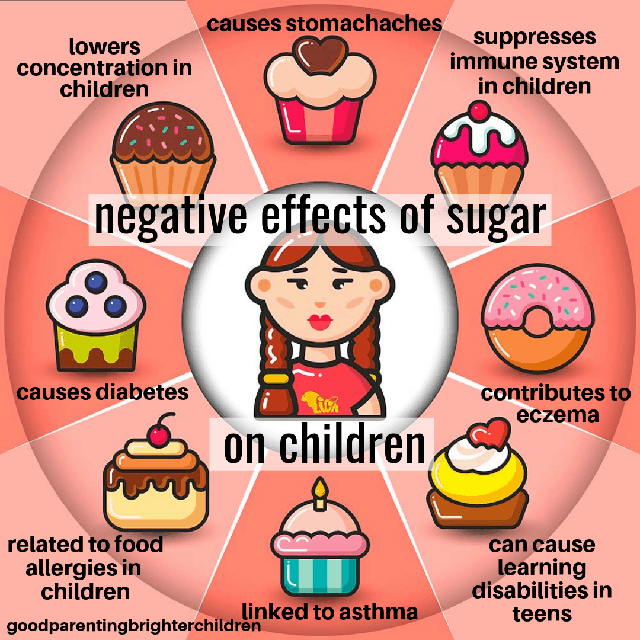Changing sugar consumption habits in children
Sugar is now ubiquitous in food and beverage products that are appealing to children.
 |
Sugar is very common in food and beverage products that are very appealing to children. |
However, these sugars often do not provide much nutrition, but on the contrary are a source of unnecessary calories, causing negative consequences for children's health, including obesity, tooth decay, increased risk of cardiovascular disease and nutritional imbalance...
The difference between sugars
According to Dr. Nguyen Thi Mai - Department of Nutrition - National Children's Hospital, sugar is a type of carbohydrate, divided into two main types: natural sugar and free sugar. Natural sugar comes from natural foods such as fruits, vegetables, some cereals and lactose in milk and dairy products.
Free sugars include all monosaccharides and disaccharides added to foods and beverages by manufacturers, cooks, or consumers, plus sugars naturally present in honey, syrups, and fruit juices. In addition, there are many types of sugars added or supplemented to foods, including refined sugars (sucrose, fructose, glucose, hydrolyzed starch), corn syrup, HFCS (high-fructose corn syrup), and other sweeteners.
Many previous studies have shown a link between consuming too much free sugar and ADHD, especially in children. However, more recent studies with more rigorous designs have failed to find a clear link between sugar and behavior in children, so more research is needed to better understand the effects of sugar on children’s behavior. However, consuming too much free sugar has many other clear health effects in children.
 |
Free sugar brings many harmful effects to children's health. |
Recommendations for children's sugar intake
Dr. Nguyen Thi Mai affirms that there is no nutritional need for free sugar in infants, young children, and adolescents. Therefore, if possible, sugar should be consumed in its natural form such as breast milk, unsweetened dairy products such as yogurt, and fresh, pure fruit rather than industrial soft drinks, fruit juices, drinks, and sweetened milk (no matter how little or much sugar).
Sugar should be consumed as part of a meal, not as a snack. Sugary drinks should not be given to infants as they can be harmful to their health and lead to an increased risk of obesity. The habit of sleeping with a bottle containing sugary drinks or milk should also be discouraged as it can lead to sleep disturbances and an increased risk of toothache. Instead, give your child water or unsweetened milk for optimal health.
In overweight and obese children, reducing free sugars in the diet is an important part of reducing energy intake.
Replacing free sugars with nonnutritive, no- or low-energy sweeteners has been associated with short-term weight loss and BMI reduction, but the long-term effects of sweeteners on metabolism and health are not well understood and there is little evidence to recommend alternative uses.
Need to change children's eating habits and preferences
 |
Education and changing children's eating habits are necessary to reduce their daily sugar intake. |
Education and changing children's eating habits are necessary to reduce their daily sugar intake.
It is known that from birth, babies naturally prefer sweet, energy-dense foods. However, exposure to different foods and flavors before and after birth can affect a baby's acceptance of foods and flavors. There may be differences in basic taste perception between breastfed and formula-fed babies. Formula-fed babies are exposed to flavors constantly, primarily sweet, and the amount of exposure depends on the variety of formulas they consume. Meanwhile, breastfed babies perceive sweetness (usually bland compared to formula) and their exposure to different flavors depends on the mother's nutrition and how varied their diet is.
Dr. Nguyen Thi Mai said that the use of free liquid sugar during childhood can affect the amount of sugar consumed by children later; the development of taste (the innate liking for sweet taste) can be changed and reinforced during the child's development. For example, children who are regularly fed sweets and juices with a lot of sugar, when they grow up (up to 10 years old), are noted to like to eat more sweets, and the amount of sugar in their diet also increases.
Children's eating preferences and habits can be formed and changed through appropriate and persistent interventions by parents, repeated during the child's development. Therefore, nutrition education and dietary interventions for children need to be given attention and implemented properly to ensure the health and comprehensive development of children.
To protect children's health, parents must reduce sugar consumption in their children's diets and instead use nutritious foods such as vegetables, fruits, poultry, fish, beans and dairy products.




.jpg)



